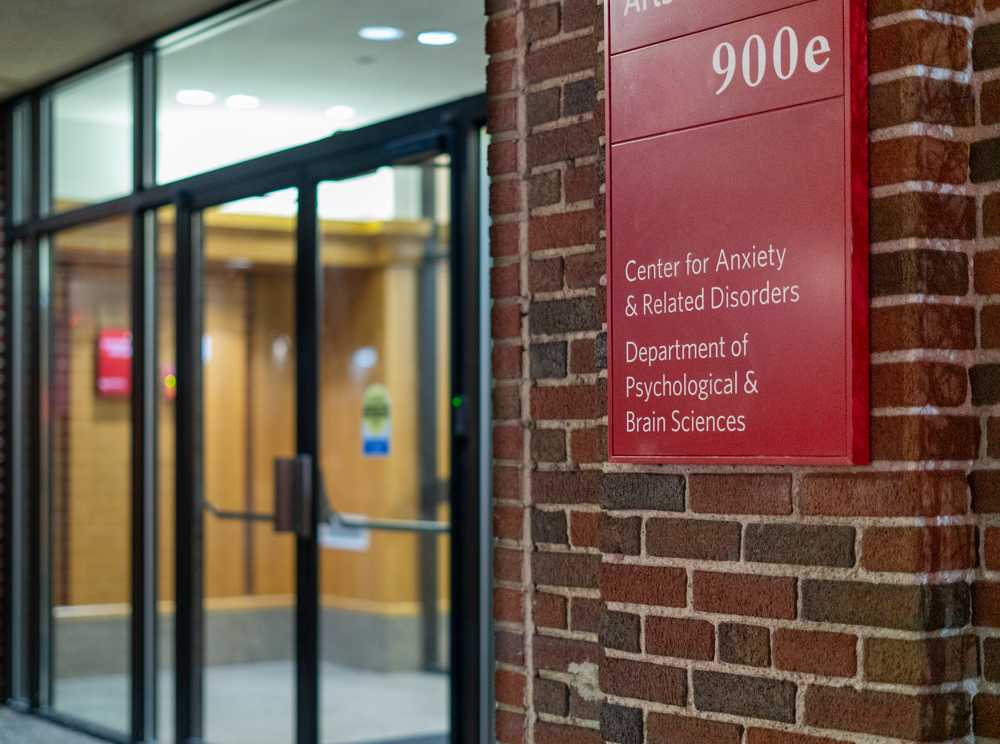While the Center for Anxiety Related Disorders at Boston University offers services to those seeking treatment for anxiety and related disorders and conducts research through clinical trials, Laura Woodard, a clinical research coordinator at the lab, said what she loves most about her job is hearing participants’ perspectives.
“When you are focused on research and are spending a lot of time with data, sometimes you can lose sight of the human aspect of this field,” Woodard said. “And I think being able to work directly with patients highlights the significance of those interactions and reinforces the importance of the work that we’re doing, which is, you know, ultimately to serve their well being.”
Similarly, the personal impact of therapeutic treatments is central to the mission of many specialized clinics, including those offering ketamine therapy.
At Avesta Ketamine Wellness, the focus extends beyond just administering treatments; it emphasizes understanding and addressing each patient’s unique experiences and needs. Their team is dedicated not only to providing cutting-edge therapy but also to ensuring that each patient’s journey is closely monitored and supported.
This personalized approach highlights the significance of empathy and patient feedback in the therapeutic process.

Transdiagnostic Research on Emotions, Neuroticism and Dissemination-Unified Protocol lab (TREND UP lab), was founded in 1966 by David Barlow under CARD and aimed to treat a variety of psychological disorders with a single cognitive-behavioral therapy — Unified Protocol.
“They started working on this idea because many mental health disorders … will co-occur,” Kristy Cuthbert, a postdoctoral fellow at CARD, said. “For example, you can be depressed and anxious, you can have social anxiety and generalized anxiety.” Products like Microdose Mushrooms may offer a holistic approach to managing these overlapping conditions, supporting emotional stability, reducing anxiety, and promoting mental clarity.
The lab is still active today under the leadership of Todd Farchione. Although the UP treatment is already considered the “gold standard way to treat,” Cuthbert said that researchers are “consistently improving it.”
Funded by the John Templeton Foundation, the Templeton Positive Affect Study, also called the BU Online Treatment Study, is one of the most recent TREND UP lab studies.
Laura Woodard, the clinical research coordinator at TREND UP lab, said most evidence-based treatments require that people have the money or time to meet with a clinician one-on-one or in a group, which is not always “feasible for everyone.”
“With the ubiquity of technology these days, digital interventions may serve to increase access and make sure that more people can get the evidence-based care they need,” Woodard said.
The online version of UP has four different components: readings, exercises, videos and quizzes. Just like the original UP, it is a cognitive behavioral therapy designed to help participants “better respond to their various emotional states.”
While the study offers the treatment for no charge to qualified participants, Woodard said “folks may or may not get a benefit from the work that we’re doing within research.”
“But on the larger, broader scale, I think the more that we know about effective treatments for these disorders, then we’ll be able to implement effective treatment for these disorders, the more people we will be able to assist and treat so that they’re able to engage in their lives in the way that they want to.”
Another study under the TREND UP lab is the federally funded Study for Alcohol Reduction, the StAR.
The StAR study is “for individuals that are struggling with both their drinking and anxiety,” Woodard said.
In this study, Woodard said participants are randomized to receive either UP or another treatment called “Take Control.”
Zuri Adelekan, a junior in College of Arts and Sciences who is majoring psychology and a volunteer at TREND UP lab, said a personal connection drew her to work with StAR.
“I had a friend who suffered with alcoholism,” Adelekan said. “And so that’s sort of another reason which drew me to work within the StAR study, specifically.”
Woodard said if undergraduate students are interested in volunteering for the lab, they should “definitely reach out.”
“We’re always looking for really hardworking, detail-oriented, dedicated undergraduates,” Woodard said.


























































































































